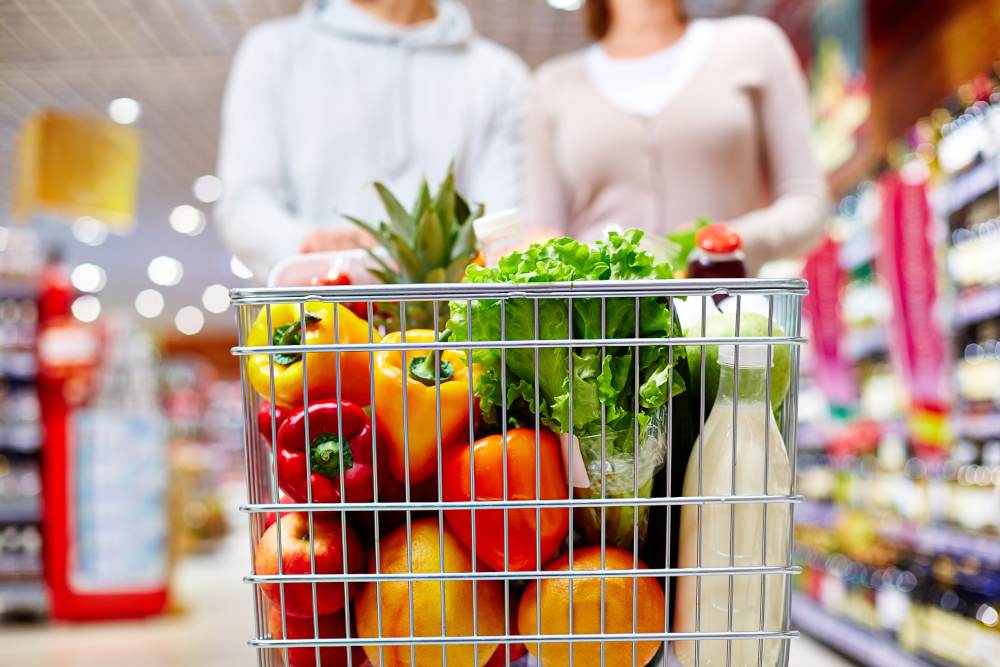
According to the World Health Organization, over half of Europe’s adult population is overweight, and similar pictures can be seen across the world. Unhealthy food choices play a large role in the obesity crisis. The low cost of unhealthy food, a lack of education and constant advertising have created a climate where it is easy to make poor choices, and at a potential cost to our health and wellness.
Who should shoulder the responsibility of turning this around? In light of COVID-19, more consumers are looking to organisations to embody a sense of responsibility and altruism. In April, Capgemini surveyed 11,000 consumers and found that more than half of consumers expect organisations to showcase their sense of purpose and give back to society, both during the crisis and beyond.
Food brands, manufacturers, and retailers have an opportunity to become proactive change-makers by innovating their in-store and online offerings to help consumers make healthier food choices. The benefits are three-fold: helping the organisation itself to embody a sense of much-needed social purpose; for the bottom line, improving customer loyalty and standing; improving global health outcomes.
So why is change so hard? While the desire to be healthy is universal, good intentions are often thwarted by in-the-moment temptations, as well as influenced by marketing messages, complex claims, and sensory appeal. As a result, behavior modification is complex. When it comes to encouraging consumers to make better food choices, changing behavior at scale is not straightforward. For example, food items have nutritional values printed on the packs – while this may be useful in increasing individual awareness, it does not address the deep, systemic behavioral issues.
Effective health and wellness programmes have to aim high: they must be multi-faceted and address the underlying social and cultural issues underpinning how today’s consumers make their choices. Solutions must simplify the complex and sometimes conflicting world of ‘healthy living’, breaking down this lofty goal into smaller steps and creating clear and consistent paths which reward progress over time.
Together with The Consumer Goods Forum, as part of its Healthier Lives Coalition, Capgemini recently explored how grocery retailers can use technology at scale to guide their customers to make healthier choices. The paper deconstructs four digital concepts which supermarkets and food brands can deploy to shape consumer behavior. These concepts are not solutions to poor food choices, but rather enablers, leveraging technology as a way to empower consumers by improving access and understanding, and inspiring a sense of motivation.
To give an example, the Decoded concept is a traffic light system that helps consumers visualise the health ratings of their purchases. Products in the green category are healthy, yellow moderately healthy and orange the least healthy. These colour assignments are calculated by an algorithm that analyses products against official health guidelines, ingredients, claims, and other factors – a far more holistic assessment than judging products on nutritional information alone.
In store, the colour codes are displayed on digital shelf tags or revealed through a barcode reader on the shopping trolley or a mobile app. Carts can also be outfitted to designate space for each colour category, helping customers visualise the overall composition of their shopping and weight purchases toward more healthy options. Online, the same system is present across product and checkout pages.
The intention is to educate and influence behavior towards healthier choices. In breaking down the basket by colour, Decoded helps demystify the food labels and nutritional messaging, simplifying the decision-making process for many consumers. Over time, consumers become more familiar with product categories, helping them form healthy habits and bringing balance into their diet.
An example of the Healthier Lives Coalition in action was launched last year by Carrefour with its online programme, ‘On s’y met’. It is designed to nudge consumers towards healthier baskets and increase awareness around healthy lifestyles as they buy groceries online. The campaign encourages consumers to eat better by advertising healthy, brand-led recipes on the Carrefour website, based around fruits and vegetables. The campaign included a financial incentive: a specific promotional price of 15% to 25% off almost all products in the recipes. As a result, Carrefour recorded an increase of x1.2 (in value and in volumes) in sales of the selected products featured in the recipes, and the brands promoted also saw a x1.6 increase in sales.
As more consumers look to – and expect – the organisations they purchase from to act with responsibility and purpose, grocery retailers and consumer products companies have a unique opportunity to use technology for good and improve the lives of their customers. Ultimately, by incorporating digital solutions like this into their stores and e-commerce platforms, organisations can both boost the bottom line and have a positive societal impact, and also win loyalty as customers begin to feel that the companies care for their wellbeing.

Kees Jacobs is the Vice-President for Global Consumer Products & Retail at Capgemini.



